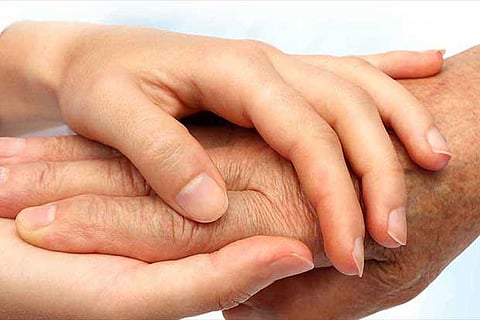

Chennai
When 30-year-old Jayanthi N was admitted to a private hospital in Chennai for gall bladder surgery, she fell in the bathroom and narrowly escaped suffering a fracture. The slippery floor which had just been washed was not dried and the nurse had made no attempts to hold her. While the incident involving Jayanthi was a minor one that left her with only bruises, there have been major accidents that have caused deaths. Talking about the elementary approach to patient safety in India on December 9 observed as World Patient Safety Day, Dr S Elango, former Director of Public Health, says, there is very little attention given to patient safety.
“The duty of the hospital is not just treatment but also ensuring the patient is safe with respect to infections, cleanliness, hygiene, food, environment, etc. This is an issue across public and private hospitals in our country.” He adds that taking Tamil Nadu as a case, there are committees in the government set up. “However, private hospitals are not brought under any regulation and operate on their own rules,” he says.
In fact, The World Health Organisation has taken notice of India’s hospital accidents like the fire accident that killed several patients in Kolkata. A recent study conducted by the International Nosocomial Infection Control Consortium (INICC) revealed that hospital-acquired infections or HAI rates in India are five times than that in the US. According to an earlier Indian Intensive Care Case Mix and Practice Patterns (INDICAPS) study carried out by Dr Elango 26% of the patients in ICUs contracted sepsis with 42.2% of them dying of it. The other common infections were pneumonia and urinary tract infections. Another concern among experts is the contraction of diseases during dialysis. A recent case being contraction of Hepatitis C by those undergoing the procedure at a government hospital in Chennai.
Dr SC Chhabra, Senior Nephrologist, NephroPlus, said, “India has around 10 lakh end stage renal disease patients of which about a lakh have access to and can afford dialysis. Around a third of them get infected by life-threatening diseases like HIV, Hepatitis B and Hepatitis C infections during dialysis. The Government, in the recently announced National Dialysis Program, must make it mandatory to screen all new patients and ongoing patients for these three viruses every quarter.
Visit news.dtnext.in to explore our interactive epaper!
Download the DT Next app for more exciting features!
Click here for iOS
Click here for Android